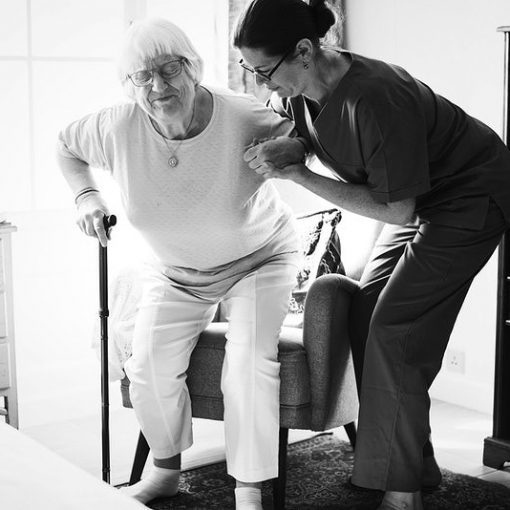International students in clinical placements
International students are increasingly pursuing education in the healthcare sector. In the near future, we may face challenges in facilitating clinical placements in this field, which, in my view, often arise due to language barriers. In healthcare sector clinical placements, inequality, behavior that can be classified as bullying, and social isolation are common. These issues can be linked to language challenges between students, supervisors, and patients (Korhonen et al. 2019).
Students are also encountering a different social and cultural educational setup than they are used to, and clinical placements can be highly stressful, pushing them out of their comfort zone. When the language barrier is added to this, especially with Finnish being known as a difficult language, navigating the internship can start to feel impossible.
According to research, collaboration between educational institutions and the workplace plays a crucial role in moving things forward. Clinical placement supervisors and mentors should be given sufficient work time to address these matters. Additionally, more training focused on cultural and language awareness should be provided to both internship supervisors and teachers. (Korhonen et al. 2019; Mikkonen et al. 2016) Although organizational-level measures play a significant role in aligning cultural and language competencies, I believe it is also important to have the right attitude at the employee level. After all, we are ultimately helping to develop a colleague for the future.
![[Alt text: two persons standing by the emergency ambulance van.]](https://blogit.lab.fi/labfocus/wp-content/uploads/sites/8/2024/09/771_2024_Being-brave-with-the-language-makes-the-difference-1024x668.jpg)
Rally English should be good enough, same goes with Finglish
Workplaces could encourage employees to mentor international students. One focus of the discussion could be the required level of English proficiency. In my experience, supervisors’ insecurity about their language skills often leads to reluctance in taking on a student for supervision. It is less commonly discussed that the student is often working with two foreign languages (Finnish and English) during their placement. So, taking this fact into account, the easier part of the job should be in the placements supervisor’s side. Especially since the professional skills are already mastered by the supervisor, unlike the student.
In my experience, international students say in interviews that they do not pay much attention to their supervisor’s level of English. They have found that Finnish supervisors generally have good language skills. We Finns have been mocking ourselves about “rally English”, but when the goal is to make yourself understood regarding the topic being taught, pronunciation is not very important, especially if the matter is approached with the right attitude. I believe that, similarly, the use of “Finglish” by the student could be a good way to demonstrate that, through cooperation, the language barrier can be overcome in most cases.
Helping hand for educational institutes
One of the most important skills in emergency care has been the ability to ask for help from others. The same applies to the current situation, as internationalization plays a bigger role in the healthcare sector. Universities of applied sciences must succeed in building clear operating models for guiding international students. Support for the welfare counties should be easily accessible, including courses on basic guidance in English and standard operating procedures for interviewing Finnish patients.
Additionally, problem areas should be addressed collaboratively. The guidance of students is changing in other ways as well. New generations require a different approach, and more is expected from mentorship.
Ultimately, it comes down to good relationships and the desire to help create better colleagues. Willingness of all participants is a key feature in making it work. Admitting our flaws and insecurities in the early stage makes everyone’s participation easier when we know what to expect. The road will certainly be bumpy, but we must adapt and overcome.
Author
Antti Tanninen is a senior lecturer in emergency care at the LAB University of Applied Sciences’ Wellbeing unit, working as a paramedic and expert in the LABlanssi project. His areas of interest include leadership, competence development, and the structures of social and healthcare services.
References
Korhonen, H. et al. 2019. Culturally and linguistically diverse healthcare students’ experiences of the clinical learning environment and mentoring: A qualitative study. Nurse education in practice. 41102637–102637.
Mikkonen, K. et al. 2016. Culturally and linguistically diverse healthcare students’ experiences of learning in a clinical environment: A systematic review of qualitative studies. International journal of nursing studies. 54173–187.




